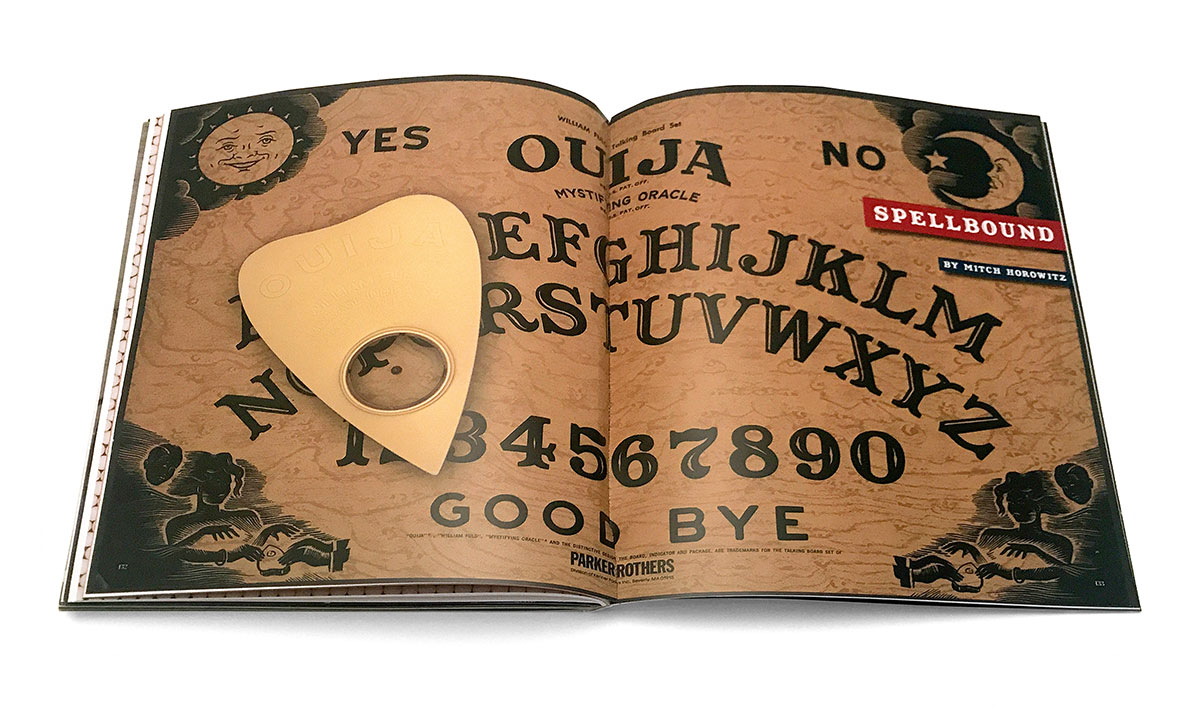In this examination of the American anomaly of the Ouija board—a unique mixture of occultist’s tool and best-selling family pastime—Mitch Horowitz assesses its impact on American life—and art.
CONTENTS +
Spellbound
By Mitch Horowitz

“In the ’60s and ’70s, Ouija circles sprang up in college dormitories, and the board emerged as a fad among adolescents, for whom its ritual of secret messages and intimate communications became a form of rebellion. One youthful experimenter recalls an enticing atmosphere of danger and intrigue—‘like shoplifting or taking drugs’—that allowed her and a girlfriend to bond together over Ouija sessions.”—Mitch Horowitz
Mitch Horowitz is a historian of alternative spirituality, mysticism, and the occult whose work, described by the Washington Post, “treats esoteric ideas and movements with an even-handed intellectual studiousness that is too often lost in today’s raised-voice discussions.” Horowitz is a lecturer-in-residence at the Philosophical Research Society in Los Angeles, a writer-in-residence at the New York Public Library, and a PEN Award-winning author whose books include Occult America (Bantam, 2009), The Miracle Club (Inner Traditions, 2018), Uncertain Places: Essays on Occult and Outsider Experiences (Inner Traditions, 2022), and Daydream Believer: Unlocking the Ultimate Power of Your Mind (G&D Media, 2022).